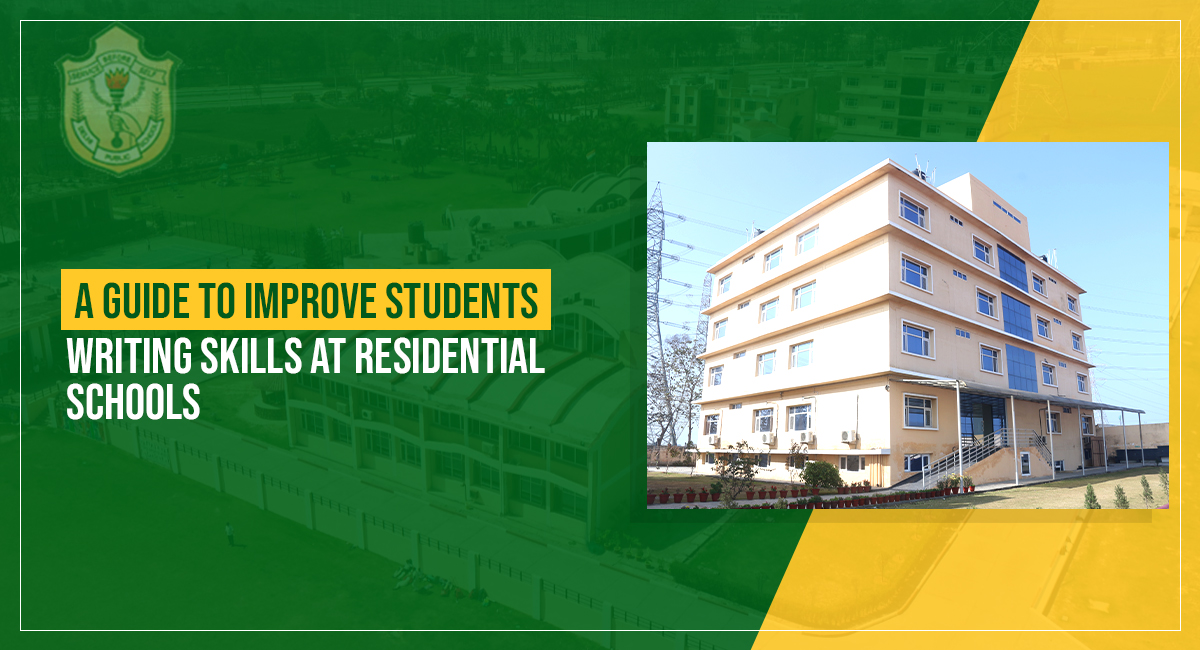In the realm of education, boarding schools hold a unique position in shaping students’ holistic development. Among them, the top boarding schools in India, particularly those in North India, stand out for their rich academic environment and emphasis on overall growth. One crucial aspect of education that these institutions prioritize is writing skills. Effective writing is not only a fundamental academic skill but also an essential tool for communication and self-expression. You should know specific strategies and approaches tailored to students in top boarding schools in North India to enhance their writing proficiency.
Understanding the Importance of Writing Skills:
Writing is more than just putting words on paper; it is a form of art that allows individuals to convey ideas, emotions, and arguments effectively. At best boarding schools in india, students are exposed to diverse academic challenges and social interactions, all of which necessitate strong writing abilities. Whether it’s crafting essays, composing reports, or engaging in creative writing, proficient writing skills are indispensable for success in academics and beyond.
Key Strategies for Improving Writing Skills:
Reading for Inspiration: Encourage students to cultivate a habit of reading extensively. Exposure to a wide range of literature, including fiction, non-fiction, poetry, and academic texts, provides inspiration and models for effective writing styles, vocabulary, and structures.
Writing Workshops and Peer Feedback: Organize regular writing workshops where students can practice different forms of writing under the guidance of teachers. Additionally, facilitate peer feedback sessions where students can critique each other’s work constructively, fostering a culture of collaboration and improvement.
Emphasizing Grammar and Mechanics: Proficiency in grammar and punctuation is the foundation of good writing. Incorporate dedicated sessions focusing on grammar rules, sentence structure, and punctuation conventions to help students refine their writing mechanics.
Journaling for Reflection: Encourage students to maintain personal journals or reflective logs. Journaling not only serves as a creative outlet but also allows students to practice expressing their thoughts and experiences in writing, enhancing introspection and self-awareness.
Writing Prompts and Creative Exercises: Provide students with a variety of writing prompts and creative exercises to stimulate their imagination and encourage experimentation with different genres and styles of writing. These activities can range from narrative prompts to thought-provoking questions that inspire critical thinking and creativity.
Integration of Technology: Leverage technology tools such as word processors, writing software, and online platforms to facilitate writing tasks. Encourage students to explore digital writing mediums such as blogging, collaborative writing platforms, and multimedia storytelling to broaden their writing repertoire.
Cultivating a Writing Community: Foster a supportive writing community within the school environment. Organize writing clubs, literary events, and competitions to celebrate students’ achievements and cultivate a shared passion for writing among peers.
Real-World Writing Opportunities: Create opportunities for students to engage in real-world writing tasks beyond the classroom. This could include writing for school publications, contributing articles to local newspapers or magazines, or participating in writing contests and conferences.
Revision and Editing Skills: Teach students the importance of revising and editing their work meticulously. Encourage them to develop strategies for self-editing and peer-editing, focusing on clarity, coherence, and precision in their writing.
Teacher Feedback and Guidance: Provide personalized feedback and guidance to students on their writing assignments. Teachers play a crucial role in identifying students’ strengths and areas for improvement, offering constructive feedback, and supporting their development as writers.
Conclusion:
In conclusion, enhancing writing skills is a continuous journey that requires dedication, practice, and guidance. For students at top boarding schools in North India, nurturing strong writing abilities is not only essential for academic success but also for personal growth and self-expression. By implementing the strategies outlined in this guide and fostering a supportive learning environment, educators can empower students to become confident and proficient writers, equipped to excel in their academic pursuits and beyond.

